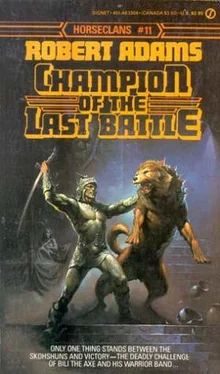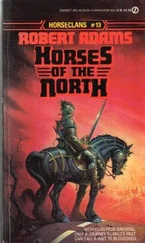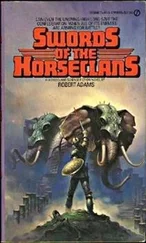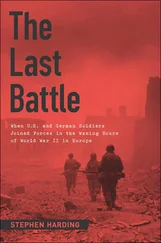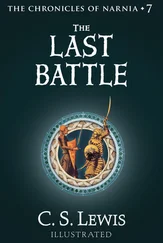The cat’s reply bore a tinge of sulkiness. “But cat brother, Whitetip enjoys spying upon the camp of the men-of—the-long-long-spears. Besides, their cattle are most tasty. Why cannot he continue at that which he does best?”
Bili rubbed a hand across the top of the cat’s big head, between his ears, and kneaded the neck muscles, eliciting a deep, deep purr in response. “Brother, you will be continuing to keep track of what the Skohshuns are up to on most nights. Only on a couple of nights in each six-day will you be here.
“Understand, please, brother, there will be times when I must be absent from my suite for long periods and I need to know that a strong, fierce and dedicated brother will be about to competently protect my female and our cubs.”
“My brother-chief need not fear,” replied the huge feline. “His female and his cubs will be as safe as any cat could keep them.”
Bili kept his sally force small, for their principal aim was not to kill large numbers of Skohshuns, but to reach and destroy the assault devices and regain to the burk with as little wasted time and effort as would be possible. Pah-Elmuh and Oodehn were the two Kleesahks he finally had chosen, for their mighty thews mould be necessary to silently remove the cyclopean stones blocking the particular hidden sallyport he had decided was best situated for this excursion. Immediately the stones were removed and the way cleared, Bili mindspoke Fil Tyluh and Frehd Brakit, each of whom was, for this night exercise, commanding two of the oversized engines constructed under the supervision of Brakit; too large to be mounted on the walls, they squatted in cleared areas just behind the front wall.
In receipt of Bili’s telepathic command, the two officers issued their own orders and triggering devices were released, almost as one. There were four tooth-jarring, contrabasso thumps of massive beams against equally massive, thickly padded crossbars, and four fiercely blazing pitchballs—each bigger than a bushel basket—sailed up and out in a parabolic flight that came finally to ground in the highly flammable canvas—and-wood camp of the Skohshuns.
Assisted by teams of draft animals, as well as several of the preternaturally powerful Kleesahks, the crews of the engines quickly recocked and reloaded their throwers, this time with bushels of fist- to head-sized stones, of which a goodly supply was ready to hand, each load premeasured out in strong wicker containers.
When Bili, standing in the now-open mouth of the previously concealed tunnel, saw the first tongues of yellow-red flame spring up, high overtopping the wooden palisades of the Skohshun camp, he took a fresh grip on the steel haft of his axe and mindspoke his score and a half of fighters; “All right, let’s go.”
Instead of keeping watch into the darkness which was the west, Pikeman Edgar Makellahr was, naturally, watching the blazing camp and scurrying dark figures, thanking God that he was not over there this night and keeping a wary eye out for the sergeant of the guard or a wandering officer. Therefore, the sixteen-year-old junior pikeman’s very first intimation that anything might be amiss closer to his post than the camp was when, all at once, a hard hand—big and stinking of garlic—clamped over his mouth, a rocklike knee slammed into the small of his back and something traced a line of agonizing fire across his throat. Abruptly the hand was removed and Edgar tried to scream, but he could not, nor could he draw in the air for which his lungs were clamoring. Then infinite blackness closed about him.
Vahk Soormehlyuhn carefully eased the still-twitching body of the big blond boy to the rocky ground, taking pains that no portion of his victim’s equipment clang or rattle. The soot-blackened Ahrmehnee warrior briefly regretted that so fine a head would have to be left to go to waste, then he moved on in a cautious stalk of his next victim, this one also observing the ongoing fires rather than keeping the watch to which he had been assigned.
The sentry killer reflected that Dook Bili had again been proved correct. When old Vahrtahn, among others, had questioned the wisdom of alerting any portion of the Skohshuns by loosings of fire and boulders upon the sleeping camp, the young leader had said, “Look you, gentlemen, precious few humans possess really decent night vision under even the best of circumstances. But all of us twolegs—even the Kleesahks—are cursed with an abiding curiosity. Now if their main camp is all ablaze and the garrison is milling about and taking casualties and screaming shouts and curses, just how many of the sentries guarding that work area do you imagine are going to be able to resist the natural, normal human impulse to steal at least a glance or three in that direction, eh? And each time they look at the blazes, they are going to weaken what little night vision they may normally possess, lessening the likelihood of our small sally party’s being apprehended until we are ready to be seen.”
When the last sentry was down, his lifeblood pouring out to soak the ground beneath him, Sergeant Eethah led her eight Moon Maidens toward the spot beneath the overhang of rock: where the carpenters and joiners lay rolled in their blankets, while Tsimbos of Ahnpolis and his largest contingent—all of them save him laden with huge, bulging, heavy skins of oil—raced to the long contraptions of wood, wicker and hides.
Most of the carpenters and relief sentries were dispatched while still asleep by the dripping dirks and shortswords of the grim Maidens. One only of them escaped, to run naked and shrieking in the direction of the distant, fiery camp; that is, he ran for the few steps he was able to take before Sir Yoo Folsom’s spinning, hard-flung francisca took him betwixt his shoulderblades and split his spine, at the same moment that an Ahrmehnee knife sank hilt-deep between two ribs.
Satisfied that no noise that they might make, no matter how loud or sharp, could be heard above the furious pandemonium emanating from the Skohshun camp, Bili set most of his band to work with the enemy’s own tools hewing and splitting and smashing what they could of the long, weighty devices before soaking them well with oil, throwing among them those tools and weapons they themselves were not taking back into the burk, then heaving the earthenware pot of live coals that Tsimbos of Ahnpolis had carried onto the site.
Bili held them until he was certain that the fire was well on the way to becoming an uncontrollable conflagration, then led them all back around the cliffline and into the tunnel. All helped the patiently waiting Kleesahks to replace the huge stones, the outer faces of which were so cunningly disguised as to make detection of their true purpose most unlikely.
Red-eyed and grouchy with lack of sleep, his hair, eyebrows and even his flaring mustaches fire-singed, Brigadier Sir Ahrthur Maklarin assessed the reports littering the top of the partially charred table before him. Occasionally, he squirmed in another attempt to find a really comfortable seat on the section of sawn log which now was the best that still existed in the near-ruined camp to serve him for a chair. At length, he summoned old Sir Djahn Makadahm, the herald.
“Sit down, Djahn,” the brigadier growled, indicating another sawn section of treetrunk, the bark still on. “If you brought anything to drink, I’ll have a bit of it.”
Unbuttoning his tunic, the herald drew forth a flat silver flask and proffered it, not speaking until after the brigadier had uncorked, upended, then recorked the flask and passed it back.
“I know it was a very bad night, Ahrthur, but just how bad was it?”
Maklarin huffed once or twice, demanding, “What the hell is that stuff you’re passing out, anyway? It’s as rough as a frozen corncob, I trow!
Читать дальше
